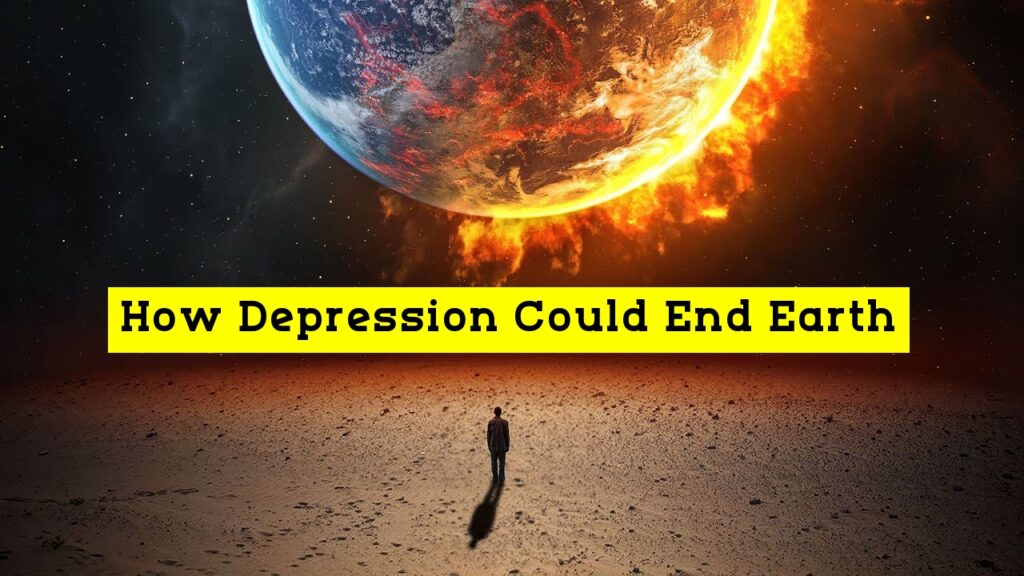In the grand narrative of existential threats to humanity, depression often flies under the radar. It’s not a nuclear bomb or a catastrophic climate event, yet its impact can be just as devastating, albeit in a more insidious manner. While depression is primarily understood as a mental health condition, its far-reaching consequences extend beyond the individual to permeate societal structures and even pose existential risks to our planet. Here, we delve into the interconnectedness of depression and its potential to catalyze the downfall of civilization.
At its core, depression is a complex interplay of genetic, biological, environmental, and psychological factors. It’s not merely feeling sad or blue; it’s a debilitating illness that engulfs individuals in a pervasive sense of hopelessness, worthlessness, and despair. Left untreated, it can lead to a myriad of adverse outcomes, including suicide, substance abuse, and physical health problems. But its ramifications don’t stop there.
Societies are built upon the collective well-being of their members. When a significant portion of the population is grappling with depression, the fabric of society begins to fray. Productivity declines, creativity stagnates, and social cohesion weakens. Economic burdens escalate as healthcare systems strain to cope with the rising tide of mental health crises. The societal costs of untreated depression are staggering, both in terms of human suffering and economic loss.
Moreover, depression exacerbates existing inequalities and injustices. Vulnerable populations, such as low-income communities, minorities, and marginalized groups, bear the brunt of its impact. Structural inequalities in access to mental healthcare further widen the gap, perpetuating a cycle of disadvantage and despair. As social disparities deepen, so does the fragility of societal stability.
How Depression Could End Earth?
The environmental toll of depression is less immediately apparent but no less significant. Depressed individuals often struggle to engage in sustainable behaviors or advocate for environmental conservation. When daily life feels like an insurmountable struggle, concerns about climate change or ecological preservation may seem like distant luxuries. Consequently, apathy and inaction towards environmental issues become pervasive, hindering efforts to address the looming ecological crises facing our planet.
Furthermore, depression can contribute to a sense of existential nihilism—a belief that life lacks inherent meaning or value. In the face of such existential despair, the imperative to protect and preserve our planet may seem futile. Why bother saving the Earth if life itself feels meaningless? This nihilistic perspective undermines efforts to mobilize collective action towards environmental sustainability, leaving our planet increasingly vulnerable to ecological collapse.
The ripple effects of depression extend beyond human realms, potentially imperiling the delicate balance of Earth’s ecosystems. As human activity continues to encroach upon natural habitats and disrupt ecological equilibrium, the mental health of other species may suffer as well. Animal populations subjected to habitat destruction, pollution, and climate change exhibit signs of stress, anxiety, and even depression-like behaviors. The unraveling of biodiversity and the loss of keystone species could have cascading effects, destabilizing ecosystems and threatening the very foundation of life on Earth.
In the digital age, technology serves as both a double-edged sword and a potential amplifier of depression’s reach. While digital platforms offer unprecedented connectivity and access to information, they also foster environments conducive to comparison, cyberbullying, and social isolation—factors known to contribute to depression and anxiety. The proliferation of online echo chambers further exacerbates societal divisions, fueling polarization and alienation. In the virtual realm, depression can spread like a contagion, infecting minds and magnifying its destructive influence.
Addressing the existential threat posed by depression requires a multifaceted approach that encompasses individual, societal, and global dimensions. Investing in mental health infrastructure, promoting social equity, and fostering a culture of environmental stewardship are essential steps towards resilience-building. Cultivating meaningful connections, both with ourselves and with the natural world, can serve as a potent antidote to despair and nihilism.
Ultimately, the battle against depression is inseparable from the quest for a sustainable and thriving planet. By recognizing the interconnectedness of mental health and environmental well-being, we can forge a path towards a future where humanity and the Earth coexist in harmony. The stakes are high, but so too is the potential for transformation and renewal. In the face of despair, let us find hope; in the depths of darkness, let us kindle the light of resilience. Our collective survival depends on it.

